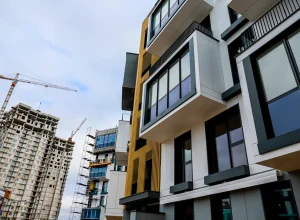Technology has been instrumental in the success of Airbnb. It has bridged the gap between travelers and property owners, offering a platform where people can list, search, and book accommodations. Here are a few key technological advancements that have fueled Airbnb’s growth and, by extension, affected the real estate industry:
- Increased Demand for Investment Properties
Airbnb has contributed to a surge in demand for investment properties in popular tourist cities. Investors are purchasing homes, apartments, or even entire buildings in cities with high tourism to list them on Airbnb. In many urban areas, this has driven up property prices, making certain neighborhoods more attractive for short-term rental investments.
- Shift in Property Valuation
Properties located in high-tourism areas are now being valued not only for their residential appeal but also for their potential as Airbnb rentals. Investors assess properties based on potential occupancy rates, nightly rental rates, and proximity to popular attractions, shifting how real estate is evaluated.
- Neighborhood Transformation
In cities where Airbnb is prevalent, entire neighborhoods have been transformed by short-term rentals. This has created new “Airbnb zones,” where investors dominate property ownership. In some areas, long-term residents have been replaced by a revolving door of short-term visitors.
- Globalization of Local Markets
The rise of Airbnb has globalized local real estate markets. Investors from anywhere in the world can buy a property in another country and rent it out to travelers using platforms like Airbnb. This globalization has, in some cases, disconnected property prices from local incomes, further driving up prices in certain cities.
- Regulatory Scrutiny
As Airbnb has grown, many cities have started introducing regulations to curb its impact on housing markets. In some cities, strict limits are placed on how many nights a property can be rented out on Airbnb per year, while others require hosts to obtain licenses. Investors should be aware of local regulations, as these can significantly impact the profitability of short-term rental investments. - Changing Market Dynamics
The proliferation of short-term rentals has contributed to the rising costs of housing in many popular destinations. This has sparked debates about housing affordability, with some critics arguing that Airbnb exacerbates housing shortages by converting long-term rental stock into short-term accommodation. This tension between housing availability and short-term rentals can create volatility in local real estate markets. - Increased Competition
Airbnb has attracted numerous investors, meaning increased competition in the short-term rental market. New investors entering the market need to differentiate their properties with unique designs, amenities, and pricing strategies to stay competitive. Saturation in popular destinations may lead to declining rental rates, especially in markets where regulations limit the supply of short-term rentals. - Economic Sensitivity
Short-term rental income can be more volatile than traditional long-term leases. A drop in tourism, economic downturns, or pandemics (as witnessed with COVID-19) can severely affect occupancy rates, leaving properties vacant for extended periods. Investors need to account for such risks when considering short-term rental properties.
For real estate investors, Airbnb presents a number of attractive benefits. Here are the key advantages:
- Higher Rental Income Potential
Airbnb rentals can generate significantly higher income compared to traditional long-term leases, especially in popular tourist destinations. Investors can charge higher nightly rates, and with high occupancy, returns can exceed standard rental yields. - Flexibility in Use
With Airbnb, property owners have more flexibility in how they use their investment. They can rent the property out when it’s convenient and even reserve it for personal use. This hybrid model allows investors to enjoy both passive income and personal utility from the property.
- Diversified Income Streams
Airbnb allows real estate investors to diversify their income streams beyond long-term tenants. This diversification can be particularly useful in mitigating risks associated with tenant vacancies or rent payment defaults.
- Scalability and Low Barriers to Entry
Platforms like Airbnb make it easy for real estate investors to manage multiple properties without the need for a large team or high overhead costs. Investors can scale their operations by adding properties to their portfolio and managing them efficiently using smart technology and online tools.
- Increased Management Responsibilities
Short-term rentals require more active management than long-term leases. Investors must handle guest check-ins and check-outs, cleaning, maintenance, and marketing the property to ensure high occupancy. This can be time-consuming and may require hiring property managers. - Regulatory Risks
As mentioned earlier, cities and local governments have been imposing stricter regulations on short-term rentals. These regulations can vary from city to city and may change over time, creating uncertainty for investors. If regulations become too restrictive, they could significantly impact the profitability of Airbnb properties.
- Economic Sensitivity and Seasonal Variability
Short-term rental income is often seasonal, with occupancy rates fluctuating throughout the year. Properties in tourist destinations may experience low occupancy during off-peak seasons, leading to inconsistent cash flow. Additionally, short-term rentals are more sensitive to broader economic changes and disruptions such as recessions, travel restrictions, or public health crises.
- Community Pushback
In some areas, local communities have pushed back against Airbnb, arguing that short-term rentals reduce housing availability for locals and disrupt neighborhoods. Investors may face pressure from local governments or neighborhood associations that oppose the expansion of Airbnb in their area.
The intersection of technology and Airbnb has brought both opportunities and challenges to the real estate investment landscape. While Airbnb can generate lucrative returns for investors, it also comes with increased responsibilities, regulatory risks, and market volatility. Investors considering Airbnb as part of their real estate portfolio need to weigh these factors carefully. Technology will continue to evolve, and platforms like Airbnb will likely remain at the forefront of the short-term rental market. However, success in this space requires not only capital but also strategic thinking, a deep understanding of market conditions, and a willingness to adapt to changing regulations and economic conditions.
By staying informed, managing risks, and leveraging technology, investors can make the most of the Airbnb revolution and maximize their real estate investment returns.



